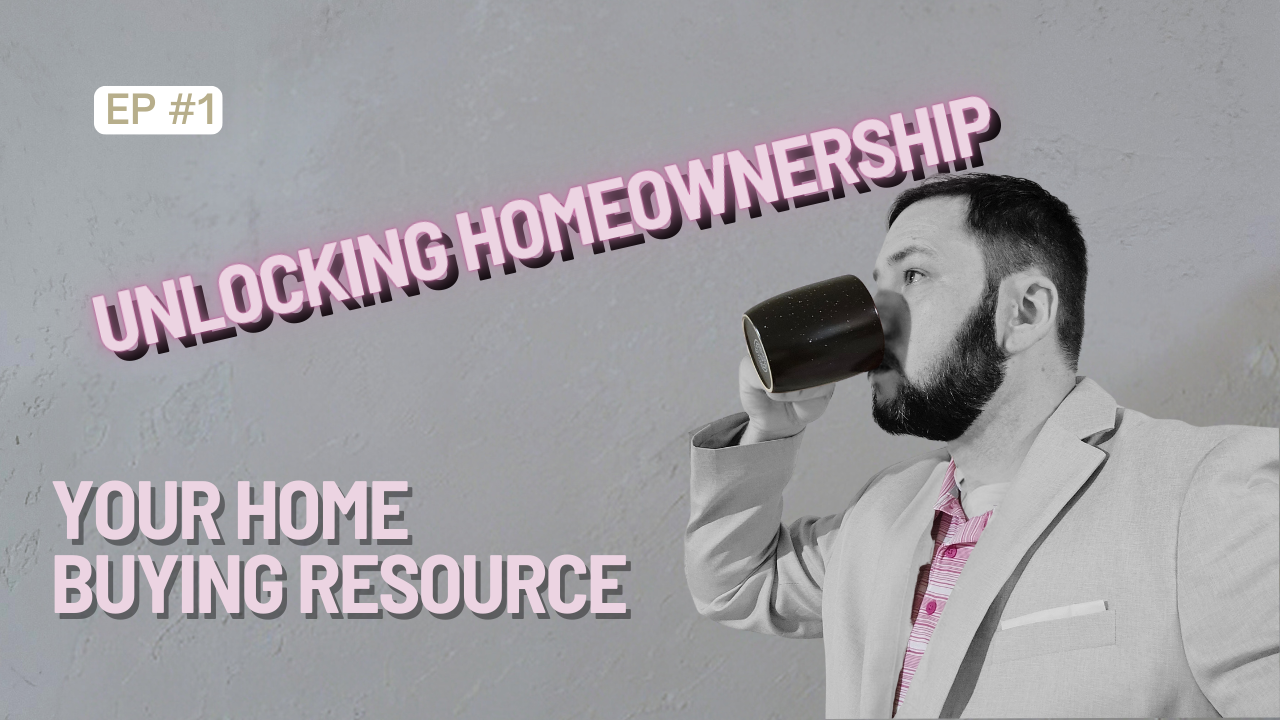Buyers guide to buying in South Carolina
Hey guys, today we’re going to talk about my buyer’s guide or my buyer’s handbook. The thing that I give all of my clients to help them move through the process start to finish and so if you’re moving in South Carolina, check this out. Alright, so what I’ve done here is linked my buyer’s guide and so this is what I go through with all of my clients. This way they kind of know what to expect. Now, I don’t expect everyone to remember the entire process the first time. But, it’s good that you hear it once before we ever start. This way when we get to that step in the process, you at least know kind of how the process is going, what to expect. And of course, we’ll revisit all of these things as we go through the process together.
I shared this with you guys. This way you have it. Because regardless if you’re using me as a realtor or not, it’s important that you’re in the know of what’s happening and what’s going on. It’s my job to make sure I get you there.
When I came into the real estate market was during COVID. And so real estate was on fire. Homes were selling like crazy. Inventory was dropping super low. We also had record low interest rates. So everything was everywhere and it was chaos.
ABOUT ME: So I’m super excited to be able to actually tell you guys that my wife and I took this team to the number one team at Century 21 803. And we’ve also been recognized as being within the top 10 and top 5 teams in the state of South Carolina. We’ve been recognized with many awards. We’ve been decorated. And I just appreciate being able to provide this level of service in my area. As far as free time. I love to read. I didn’t know I love to read until a few years ago, but I absolutely love it. I like reading books from David Goggins, Grant Cardone, among many other self-help/self-improvement books that gets a fire going. So if you know a great book, recommend it to me. I would love the opportunity to read it.

STEP 1: PREPARE: All right. So step one, we’re going to talk about getting prepared to buy a house. And so you want to make sure that your finances are in order. So when you go to purchase a home, it could be somewhere between 0 to 10 percent just for a down payment more if you want it less depending on the loan type. So you want to make sure that you do have some reserves. I would like to say if you have 16 percent of the purchase price, you’d be comfortable. Now, I’m not the money side of things. You’d want to talk to a lender to be more specific, but 16 percent is going to give you somewhere between a 3.5-10 percent down payment and then 6 percent for additional closing costs and other fees that may come up. If there’s a problem with the home or something like that. So if you don’t have that and you’re trying to get that taken care of, you can always contact a financial institution to start the process. They’re going to be able to give you helpful tips on how to how to get your money right. they will give you helpful financial tips to get you in a place that you need to be in order to purchase. The next thing you’re going to want to look for is a realtor. And I’m not saying you have to work with me. You have the right to work with anybody or nobody in the state of South Carolina. However, in the years that I’ve been a realtor, I’ve grown to understand the true value that an agent brings to a real estate transaction. Agents handle a majority of the incoming and outgoing communication throughout the process. They coordinate dates and times and negotiate price and repairs. And if they’re representing you specifically, it’s in your best interest. We’ll talk more on that later. I actually find huge value in realtors, so much so that when I purchase outside of my area of expertise, which would be Richland, Lexington and Kershaw County, I use a realtor for those transactions, both buying and selling. If you like the way that I do things or how I present myself or confident in my abilities to represent you, or you’re not sure and want to find out, you can always reach out to me and then getting a mortgage pre-approval. And so before you start shopping around for homes, it’s crucial to get a pre-approval. Find a mortgage broker that works best for you. You can always take a recommendation from a realtor. I know that I have lenders that I’ve worked with in the past that have done great work for my clients.
STEP 2: FIND YOUR HOME: All right, great. We’ve done the preliminary work. Now we’re going to be on to step two. Now here you want to make a list of things that you require and desire to be in your new home. Right. Wants on one side, needs on the other. And we’re going to hit as many of the wants as possible while simultaneously checking off all of your needs. Also be sure to discuss this with any co-buyers that you have. If you have a husband, wife, partner, mom, dad, aunt, uncle, son, daughter or whomever who are making this purchase with you. You want to include them on what are we looking for in a house. Talking about this early is going to help prevent a lot of trouble in the future.
Great, now we have what’s established as our buyer’s box. We know what we’re looking for. That’s when we’re going to start looking for homes. You’re going to share with me that buyer’s box or that information so that we can start looking through the homes that I have available internally through the MLS. And we’re also going to look at any external sites as well, like any for sale by owners and things like that. Now we’re going to move on. We found the house of our dreams. It’s time to write an offer. So as we’re drawing up this offer, I’ll ask you a series of questions that are all contingencies built into the contract that fit what you are looking for and what you’re willing to offer for the home. This isn’t just purchase price. Obviously, purchase price is going to be one of the highest leveraging items on a contract, but there’s more to it than that. Some people need to get out of a house as soon as possible. So we may try and negotiate our closing date to try and make sure it accommodates what they need.
If they have an offer that’s similar, maybe a thousand dollars more, five hundred dollars less, something like that. But you’re flexible on the closing day where they can stay in their home while they’re looking for another home. That really makes an offer enticing. But there are many, many factors on that. I’ll probably do a whole other article on just an offer. So we’ll leave it there for now.
STEP 3: POST-OFFER TASKS: So on the contract in our offer, we can include something called due diligence. In our due diligence period, well, before I go on, I’ll explain what a due diligence period is. You’ll have an allotted amount of time. Now, depending on what contract you use is how much time is there within our CCRA contract or the Columbia contract as it’s currently written, as of writing this article, and it is changing. Maybe not this section per se, but it gives you 10 business days or about 14 days, depending on the holidays. So that’s written in unless we elect not to use that. You’ll be able to take the 10 business day due diligence period and complete your inspections. That gives you time to check on the property to make sure that you like what you’re about to purchase. And it also is a protection period, too. So if the home inspection comes back, let’s say we’re purchasing this house for 350,000, home inspection comes back and there’s leaks all in the walls. You guys don’t want to deal with it. Well, then you’d be protected under your due diligence period to be able to drop out of that contract and retain your earnest money. Now we’ll jump into the appraisal.
Oh, before I leave the inspection, I want to make sure you guys know I saw this a lot during COVID. People were waving their general home inspection in order to try and entice a seller. Well, yes, you can use that as a leverage. You can still purchase a home as is and have an inspection without the expectation of repairs. This home inspection is for you as a buyer. It’s not so that you can ask for repairs, although sometimes it does lead to that. But it’s for you to know what you’re purchasing. If you have a car and you want to buy a car, but you don’t look at it and turns out it’s missing the engine, you’re going to be pretty upset. So very, very important. Do your home inspection. Your realtor should be able to talk to a seller or a seller’s agent to go into contract or at least enter due diligence period without waiving the inspection.
And personally, if they don’t, might be a reason for that.
Now, depending on what kind of financing type a lender may require, an appraisal will be done prior to loaning on the property. The reason they do that is because they want to make sure that they’re lending you the amount of money that the home is worth. Now, just because the home may not be worth what you’ve agreed to in the appraisal does not mean that that home’s not worth it to you. When the appraiser comes in, they’re going to put a price that they feel is accurate for the home. But remember that a realtor is not going to be able to determine the true price of a property, an appraiser is not going to be able to determine a true price of the property, a home is valued at what someone will pay for it. Given the circumstances, you may decide that you want to pay more than what an appraiser says. You may decide that you want to pay less than what an appraiser says. The appraiser is not indicative of the true value of the home to you. You may find value in a property. You might want this property for a specific reason and be willing to pay more than what an appraiser says. But a lender is not going to give you extra money because you want it.
I also want to mention that if you are purchasing in cash, you can hire your own appraiser if you feel that’s necessary. Some states use title companies. Some states use attorneys. South Carolina, we utilize attorneys and they’ll be doing the title search on the property, which essentially is just making sure that the title is free and clear and conveyable. Now, of course, there are stipulations to just about everything I’ve said so far and everything I’m going to say. But those are often on a case by case basis. And we’re trying to encompass as much of the general as possible. So in the majority of the time, a general warranty deed will be issued through the purchase of a property.
STEP 4: CLOSING PREP: Closing preparation. We’re under contract, we’re out of due diligence period. There was an awkward amount of time in between now and then when that we just kind of did nothing but wait. That’s the lender working on the back end. They’re making sure that you can qualify for your loan. They’re checking all your numbers, checking on everything there, making sure that the appraiser gets their job done simultaneously. The attorneys pulling up title, going through abstract and things like that. They’re doing their job. We may have negotiated repairs with the seller at that time. But essentially, there may be a few days, if not two-three weeks or more, depending on our closing where it’s just been limbo. But now we’re getting right down to the wire. Couple days before closing. We have our homeowners insurance lined up. Now you want to make sure that you are shopping around for quotes the same way you shopped around for a realtor, the same way you shopped around for a lender, the same way you’re shopping around for your attorney.
You want to get multiple quotes that you can find someone who’s giving you the best price. Now you may say, oh, Jon, I have this bank and they’ve taken care of me for so many years. They have my allegiance. I’m going to go with them. I don’t need to check on anybody else. And that’s great. And I’m so happy that they’ve provided a level of service that earned that loyalty from you. However, still not a bad idea to get a quote. You may be partial to using whatever bank or institution that you’ve worked with in the past, but they may give you a quote and then you get a quote from somebody else that’s lower. If you still want to stick with this bank or this lender, you can pick that quote and say, hey, how come this company offered me this price? And magically the price gets reduced. It happens all the time. Shop around. I went off on a bit of a tangent there. We were talking about homeowners insurance.
So going back to homeowners insurance, there are a couple of different brokers for insurance that will shop you as a client to multiple different institutions. You can utilize them. You can do it yourself. You can just blindly go with the company that you’ve always used. You can pair it with your car and there’s plenty of options out there. But you do want to make sure you have homeowners insurance when you have the property.
You also want to make sure you’re changing your address and utilities. You’re not sure what utilities are available in the home that you’re looking to purchase. You can talk to your realtor. If you’re not being represented, you can always talk to the seller or the seller’s representative to get that information from there. Who do they use? There may only be one option in the area when it comes to water or electric or there may be multiple options when it comes to internet or television service providers either which way day or two before closing. We want to make sure that we have all those things in line, ready to go so that we can go right in and move to our new home.
And then probably sooner than all of those things, you want to make sure you start packing your old place, whether you’re renting or moving out of a family home. Or maybe upsizing. Packing is important, getting your belongings together. I do have a video that I made that has some helpful tips on packing. I’ll stick that right here.
Moving in the Military: Ft. Jackson
STEP 5: MOVING IN: Day before closing, same day as closing. What’s left to do? We got to be getting close and you’re right. We are. Usually within 24 hours of closing, you want to do what’s called a final walkthrough. We’re going to walk through the property, check for any new or undiscovered damages from when we saw it the first time. If anything’s changed, we want to make sure that we bring that up to not only the seller, but attorney. Hey, we may have a possible problem. We need to look into this. Doesn’t always happen, but if it ever does, you’ll be glad that you walked through the property prior to. Also, with that being said, if a tree happened to fall on the property, sellers moved out. We didn’t go look at it. Now that’s your tree in your house. Very important to do your final walkthrough.
Next, we’ll head to the attorney’s office. This is where we’re going to have closing. A couple of things you want to make sure you bring with you is a valid government issue to ID. You may even need two forms of identification. So if you have a passport or a birth certificate, something like that, bring that as well. Cashier’s check in case you have any additional closing costs that you haven’t already wired. Outstanding documents that may be required from your lawyer or your lender. More often than not, this will already be settled prior to us showing up and you’ll probably just need your ID and a pen. And a well-rested hand because you are going to be signing a lot of documents, especially if you’re financing the property. Lenders tend to have entire packets that need to be signed through again. And in some cases, they’ll need them signed through twice so it can get lengthy.

So for both the buyer and the seller, you guys are going to have closing costs on this day. Those things are typically wired. I provided a list of things that may be charged to you on your settlement statement just to help you prepare for it. And again, all these quotes should be included as you’re going through the lending process. They’ll have estimates based on what they’ve seen in the past. Your attorney should be able to have estimates. None of this information should be new. Ask questions to your lawyer. If you’re not sure, you don’t know, ask. You may have an attorney that’s going through boom, boom, boom, boom, boom, boom, boom. This is what you’re signing. This is what you’re signing. This is what you’re signing.
You’re making a large financial purchase. If you’re uncomfortable. Say something.
Hey, what does this mean?
Okay. And why am I signing this again?
This looks different from the last time I saw it. Can you tell me why that is?
Why is it necessary to have this? This is the first time I’m seeing it.
Everything that you’re thinking, feel free to ask because this is your time that you’re agreeing to all of this stuff. Protect yourself. And then lastly, congratulations on your new purchase. You just purchased a home.
Let me know if you need help finding your new home. If you’re looking for assistance, you can always contact a member of my team or myself via ( THIS ) link. Best of luck in your home buying journey!
Cheers,
Written By: Jonathan Tiedman


 Facebook
Facebook
 X
X
 Pinterest
Pinterest
 Copy Link
Copy Link


